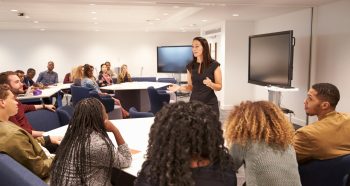Working as a trainer for Cambridge International Examinations is a privilege. I’ve learnt a huge amount from working with teachers around the world and I always return refreshed with new ideas to incorporate into my own teaching practice. I had never realised how much of a privilege this really is until in October 2015 when I was struck down by a mystery illness. I eventually went to the doctor after my daughter had to start the car for me. The grip in my hands had gone and my right ankle wouldn’t hold my own weight. After a quick examination, I was off to hospital in an ambulance, where I remained for the next 15 days.
So why write about my experience in a blog?
Well, you’ve got to do something in hospital and once I’d started treatment, I began to think about myself as a patient, and about the care provided by the incredible doctors and nursing staff. Observation is a prerequisite of effective classroom teaching and learning. In that hospital ward I observed so much that I thought I’d write about it!
As soon as I arrived on my hospital ward, I realised that routine was going to be important. The routine of the ward helped provide me with a structure for the day. It gave me a sense of purpose from morning to evening, whilst still allowing me autonomy in how to organise my time. When the consultant examined me, she didn’t just look at my notes. She asked me to talk about what had happened. That set the tone for my treatment; I had a sense of ownership of what they planned. There really was a spirit of co-enquiry to work out what was wrong with me. She trusted me to give a full account and she listened to what I had to say. As the days went on, I had many blood tests. I googled the blood test, to work out what they were testing for, and then one of the junior doctors would answer my questions. They would often do this by asking me questions so I could work out why they were following a particular line of inquiry. Of course, as a scientist I had some pre-existing knowledge, which they realised they could build on.
In fact, I noticed that all the ward staff invested time in conversation. They treated me as an individual, rather than ‘just another patient’, helping me to feel valued. It felt like I’d got to know the nursing staff personally, and they got to know me. When I asked about it they confirmed their policy of nursing the whole person, not just the ailment. The sense of community which that fostered in my 6-bed bay on the ward was fantastic to be a part of. I felt supported both by the nurses and my fellow patients. Both would be encouraging with heaps of praise when I was trying to walk normally. The staff also inspired trust. They did this through displaying and giving me excellent knowledge about my condition and its treatment and going out of their way for me. For example, each evening I had to receive 7 bottles of intravenous medicine. One sister in particular always started that course of treatment in the early evening because she realised it would interfere with my sleep. Her sense of empathy was outstanding, and her adaptation to the needs of her patients was very obvious. All of the staff were incredibly patient, even when what was demanded of them would have floored the best of us.
Good teaching and learning puts the responsibility in the hands of the learner and many of the emboldened words above do just that. Many of those words also explain why I impressed my visitors with my positive mood and motivated approach to recovery. With hindsight, I think my motivation came from my care. Self-determination theory (selfdeterminationtheory.org) says that to be motivated, you need three things: autonomy, competence and relatedness (a social bond to those around you).
Now I’m almost finished, but I’m going to let you do the final stage. Pick up a pen and write these three words; autonomy, competence and relatedness down as column headings in a table. Try to place my emboldened words/phrases into each column (do as many as you can). As self-determination theory puts it, they helped make me lead my own recovery. Maybe they will also help you lead your own teaching and learning.





